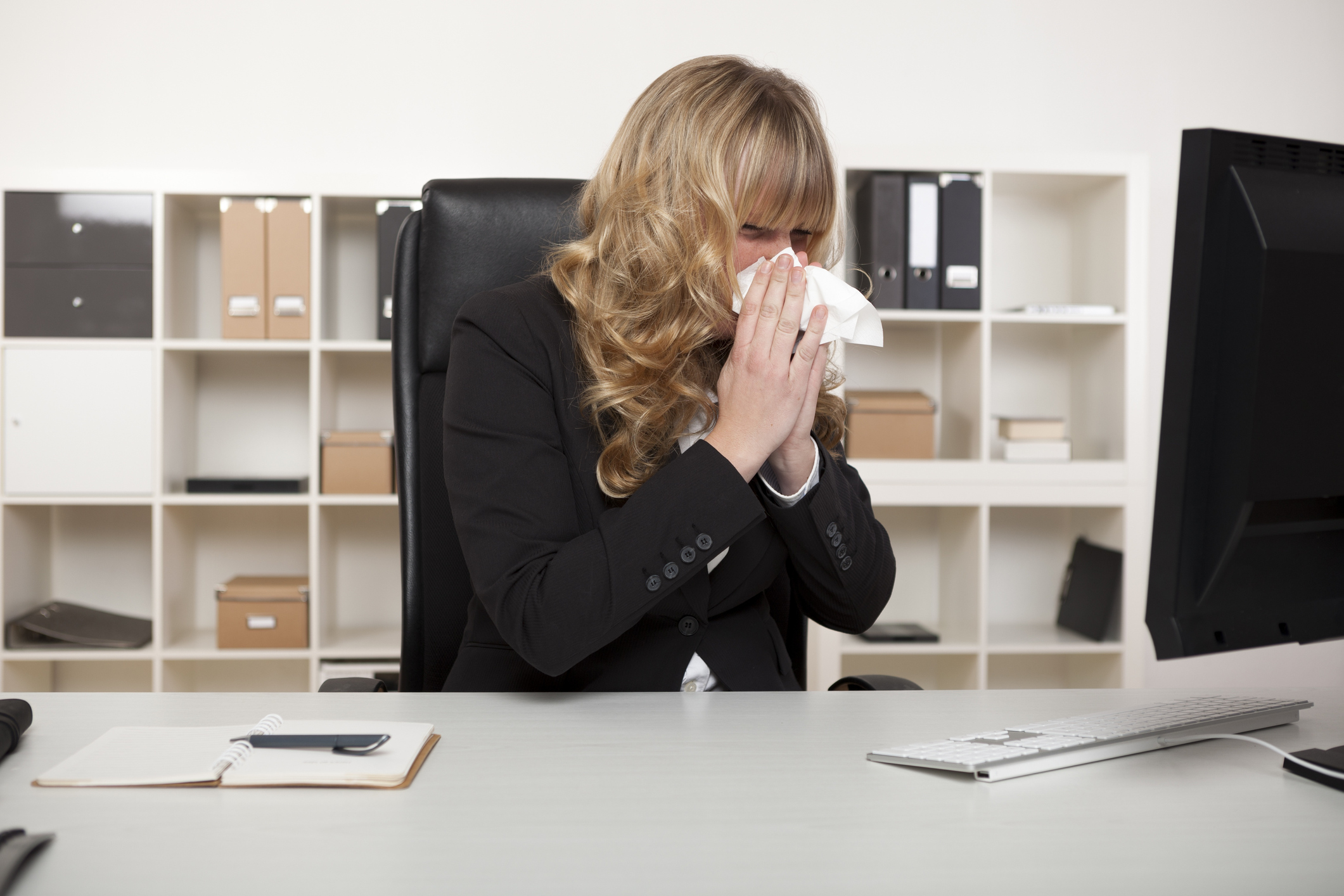With flu season right around the corner, countless Americans are no doubt frantically consulting their employee manuals and reading up on their companies' sick policies. And chances are, the news there isn't all good.
A recent survey found that 10% of full-time working Americans get absolutely no paid sick days whatsoever. Meanwhile, more than 25% of workers get between one and five paid sick days. It's no wonder, then, that 38% of full-time workers are willing to show up to the office even when they know they're contagious.

IMAGE SOURCE: GETTY IMAGES.
If your company has a stingy sick-leave policy, it pays to rethink it. Otherwise, you'll only be promoting an unhealthy practice that ultimately will hurt your employees and the business on the whole.
Employees need sick time
Getting sick is one of those things you just can't help, but if you penalize your employees for having the misfortune of picking up germs, it'll likely come back to bite you. Imagine you have a worker who can't afford to take time off without pay and comes down with something contagious. If the employee chooses to come to the office and infects 14 other people, you'll have a string of employees calling in sick simultaneously -- not just one. As such, you'll probably come to find that major deadlines get missed and overall productivity suffers.
Now imagine that that same worker was to call in sick, stay home for a day or two, and recuperate before coming back to the office. At most, you'll be playing catchup on whatever assignments that specific person was responsible for, as opposed to compensating for a large chunk of your workforce being out.
All of this might sound logical, but when we consider the number of American workers without ample sick time, it's clear that employers need a little refresher on the importance of paid time off. Furthermore, it's not just physical illnesses that workers need time to recover from. Less than 10% of workers are willing to call in sick to tend to mental health issues, and that's most likely due to both the stigma involved and the limited bucket of sick days those folks are working with in the first place.
All of this boils down to one thing: the need for a reasonable sick policy. Some companies offer sick time on an as-needed basis -- meaning, workers stay home when they need to, regardless of how many days they rack up. If that sort of system doesn't work for you, do some research and figure out how many sick days you need to offer to ensure that employees get a chance to get well.
Furthermore, don't make the mistake of bundling vacation days and sick days into a single package. Doing so will likely prompt employees to keep coming to work sick, since, let's face it, nobody wants to use leisure time to get over a nasty cough.
Finally, it pays to be more flexible with letting employees who don't feel well work from home. It's often the case that someone who's ill doesn't need to miss a full day of work, but rather, is able to accomplish some tasks in between periods of intense nose-blowing and rest. By allowing that individual to work from home, you'll get a little output out of the deal, all the while accomplishing the ever-important goal of limiting the spread of germs in the workplace. And that's something everyone will benefit from.
Remember, when you're generous with sick time, you send the message that you value your employees. And if your goal is to keep them around, that's a smart approach to take.